
Kosrae: The Jewel of Micronesia
Kosrae, an island in the Federated States of Micronesia, offers a serene escape for those seeking an unspoiled paradise. Known for its lush landscapes, vibrant coral reefs, and rich cultural heritage, Kosrae is a hidden gem waiting to be explored. Nature enthusiasts will be captivated by the island's dense rainforests and towering mangroves. The hiking trails lead to breathtaking viewpoints and hidden waterfalls, offering a refreshing escape into nature. The island's pristine beaches, like the famous Utwe Beach, provide a perfect spot for relaxation and sunbathing. Kosrae is a haven for divers and snorkelers. The crystal-clear waters reveal a stunning underwater world, teeming with marine life and colorful corals. Blue Hole, one of the most popular dive sites, promises an unforgettable experience with its dramatic drop-offs and diverse sea creatures. The local culture is rich and vibrant, with friendly residents eager to share their traditions. Visit the Lelu Ruins, remnants of an ancient city that offer a glimpse into Kosrae's storied past. Don't miss the chance to experience traditional dances and sample local delicacies, which are sure to delight your taste buds. Whether you're an adventurer, a history buff, or someone in search of tranquility, Kosrae offers a unique and enriching experience that will leave you with memories to cherish.
Local tips in Kosrae
- Bring reef-safe sunscreen to protect both your skin and the fragile marine ecosystems.
- Respect local customs and dress modestly when visiting villages.
- Cash is king in Kosrae; ensure you have enough as ATMs are limited.
- Hire a local guide for hiking to learn about the island's flora and fauna.
- Plan your visit around the dry season, from December to April, for the best weather.
Kosrae: The Jewel of Micronesia
Kosrae, an island in the Federated States of Micronesia, offers a serene escape for those seeking an unspoiled paradise. Known for its lush landscapes, vibrant coral reefs, and rich cultural heritage, Kosrae is a hidden gem waiting to be explored. Nature enthusiasts will be captivated by the island's dense rainforests and towering mangroves. The hiking trails lead to breathtaking viewpoints and hidden waterfalls, offering a refreshing escape into nature. The island's pristine beaches, like the famous Utwe Beach, provide a perfect spot for relaxation and sunbathing. Kosrae is a haven for divers and snorkelers. The crystal-clear waters reveal a stunning underwater world, teeming with marine life and colorful corals. Blue Hole, one of the most popular dive sites, promises an unforgettable experience with its dramatic drop-offs and diverse sea creatures. The local culture is rich and vibrant, with friendly residents eager to share their traditions. Visit the Lelu Ruins, remnants of an ancient city that offer a glimpse into Kosrae's storied past. Don't miss the chance to experience traditional dances and sample local delicacies, which are sure to delight your taste buds. Whether you're an adventurer, a history buff, or someone in search of tranquility, Kosrae offers a unique and enriching experience that will leave you with memories to cherish.
When is the best time to go to Kosrae?
Iconic landmarks you can’t miss
Kosrae Nautilus Resort
Experience the tranquil beauty of Kosrae at Kosrae Nautilus Resort, a perfect getaway for snorkeling and relaxation amidst lush tropical paradise.

Lelu Ruins Historic Park
Uncover the ancient wonders of Lelu Ruins Historic Park in Kosrae, a hidden gem showcasing Micronesia's rich cultural heritage.
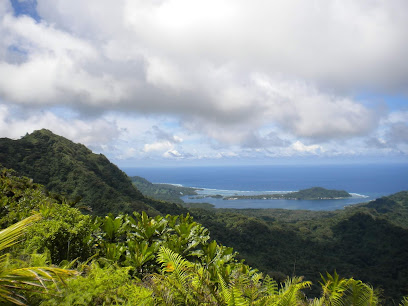
Kosrae Island
Explore Kosrae Island: A Tropical Paradise of Lush Landscapes, Rich Culture, and Breathtaking Marine Life in Micronesia.
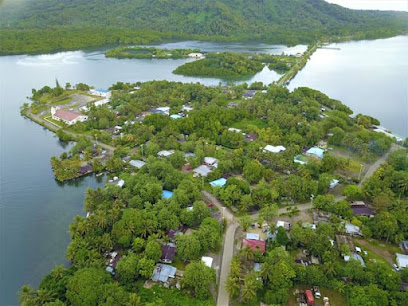
Kosrae International Airport
Discover the beauty of Kosrae through its International Airport, your gateway to this tropical paradise filled with adventure and culture.
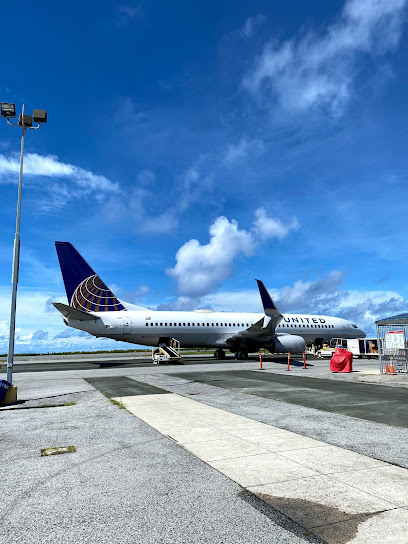
Lelu
Explore the serene beauty and vibrant culture of Lelu Island in Kosrae - a hidden paradise perfect for relaxation and adventure.
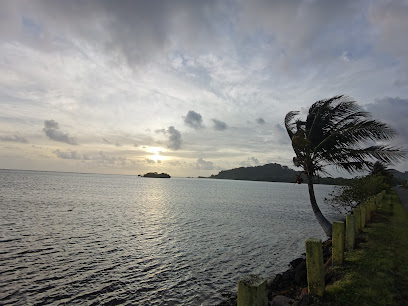
Sipyen waterfall
Discover the serene beauty of Sipyen Waterfall, a hidden paradise in Kosrae, perfect for nature lovers and adventure seekers alike.
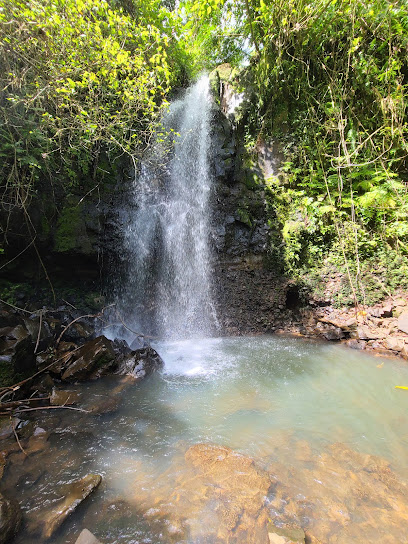
Kosrae Museum
Uncover the cultural treasures of Kosrae at the Kosrae Museum, where history and tradition come alive through fascinating exhibits.
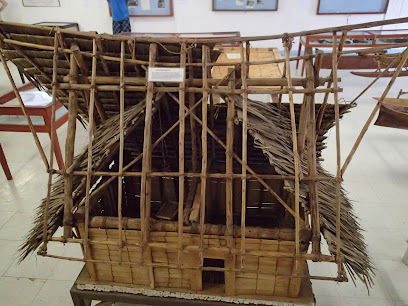
Yela Ka Forest
Explore the serene beauty of Yela Ka Forest in Kosrae, a nature preserve filled with lush landscapes and diverse wildlife.
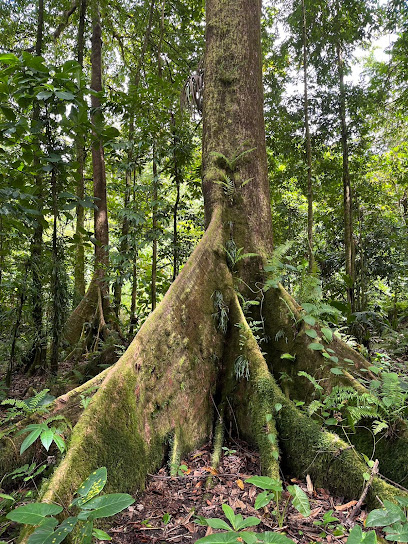
Mutunlik kosrae
Discover tranquility and comfort at Mutunlik, the perfect lodging for your Kosrae adventure amidst nature's beauty.

Kosrae, Okat Micronesia
Explore the untouched beauty of Kosrae, Okat Micronesia - a tranquil haven for nature lovers and cultural enthusiasts alike.

Likinlulem
Explore Likinlulem, an archaeological site in Kosrae, where ancient stone structures meet lush natural beauty, offering a unique glimpse into the island's rich heritage.

Yekula Waterfall
Unwind at Yekula Waterfall, a hidden paradise in Kosrae, where lush landscapes and tranquil waters create a serene escape into nature's beauty.

Unmissable attractions to see
Wiyac Bird Cave
Discover the enchanting Wiyac Bird Cave, a must-visit natural attraction in Kosrae teeming with unique wildlife and stunning rock formations.
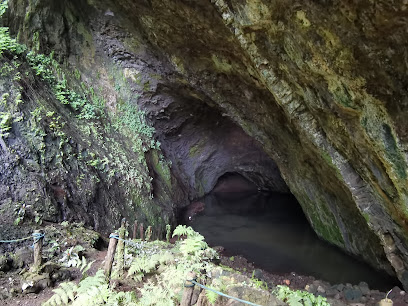
Kosrae Museum
Explore the rich cultural heritage of Kosrae at the Kosrae Museum, where the island's history and traditions come alive for every visitor.
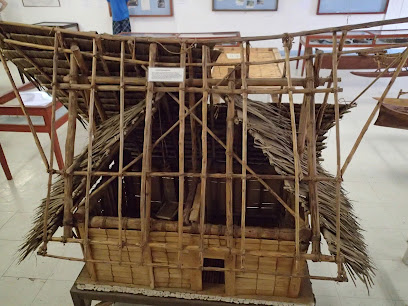
Yela Ka Forest
Experience the untouched beauty of Yela Ka Forest, a serene nature preserve in Kosrae perfect for hiking, wildlife spotting, and peaceful exploration.
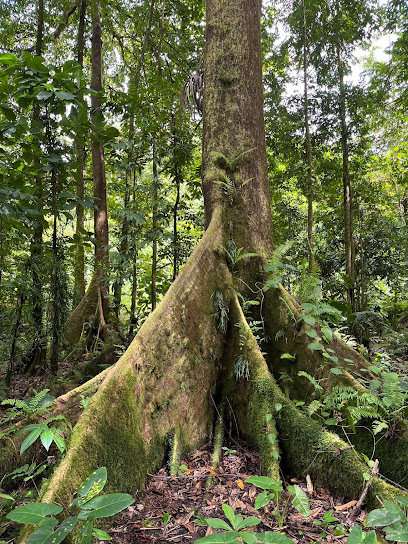
Boro Mountain
Explore the stunning Boro Mountain in Kosrae, where breathtaking views and lush landscapes await adventure seekers and nature lovers alike.
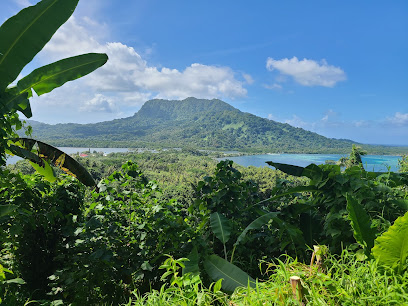
Olum Cascade Waterfall
Explore the enchanting Olum Cascade Waterfall in Kosrae, where nature's beauty and tranquility offer a perfect escape for all adventurers.
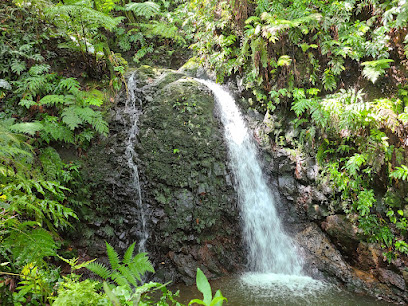
The Sleeping Lady vista point
Explore the tranquil beauty of The Sleeping Lady Vista Point in Kosrae, where stunning views and serene nature await travelers seeking a peaceful getaway.
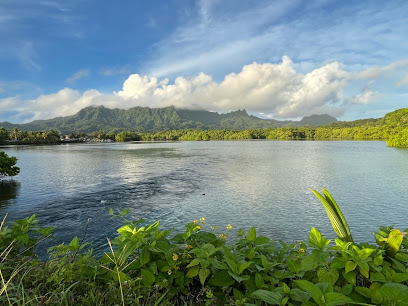
Blue Hole Pier
Explore the stunning Blue Hole Pier in Kosrae, a serene destination for relaxation, marine adventures, and breathtaking views of nature.
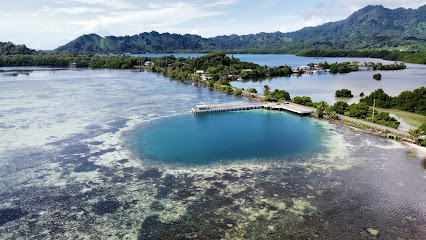
Kosrae Visitor Information Center
Explore Kosrae through its Visitor Information Center, your gateway to the island's stunning landscapes and rich cultural heritage.
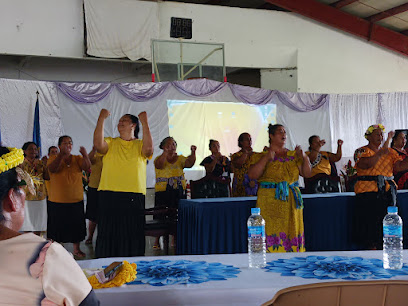
Likinlulem
Explore Likinlulem, an archaeological site in Kosrae, where ancient history and breathtaking landscapes come together for an unforgettable experience.

Yekula Waterfall
Experience the serene beauty of Yekula Waterfall in Kosrae, a must-visit natural attraction surrounded by lush tropical landscapes.

Uttac Indigenous Hiking Trail
Explore the breathtaking Uttac Indigenous Hiking Trail in Malem, Kosrae, where nature's beauty and indigenous culture come together for an unforgettable adventure.
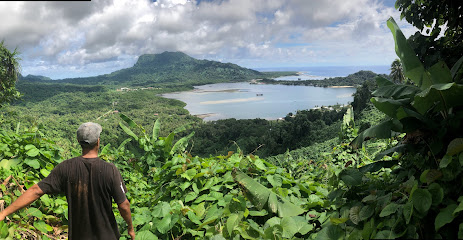
Uttac Hiking Trail
Explore the stunning Uttac Hiking Trail in Kosrae for an unforgettable adventure through lush forests and breathtaking ocean views in the heart of nature.

Essential places to dine
Denny's Micronesia Mall
Experience the best of American comfort food at Denny's Micronesia Mall - perfect for families and tourists craving delicious diner classics.
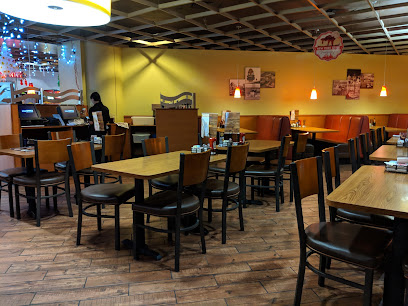
Beachin' Shrimp 3
Experience fresh flavors and delightful seafood dishes at Beachin' Shrimp 3 in Micronesia Mall, Guam.
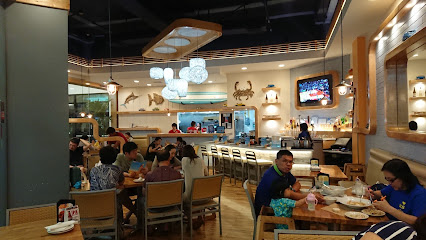
Joy Hotel & Restaurant
Discover Joy Hotel & Restaurant: A fusion of authentic Japanese cuisine and island hospitality in Kolonia, Pohnpei.

Kosrae Nautilus Resort
Experience paradise at Kosrae Nautilus Resort—your serene retreat surrounded by breathtaking landscapes and vibrant marine life.

Chinastar Hotel & Restaurant
Experience authentic Chinese flavors and warm hospitality at Chinastar Hotel & Restaurant in Kolonia, Pohnpei.

Korea Place
Experience authentic Korean cuisine at Korea Place in Liguan, Guam—where tradition meets flavor in every dish.
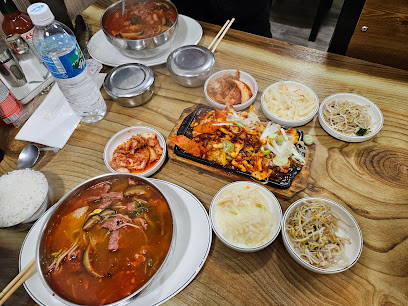
7 Stars Inn & Riverside Restaurant
Experience authentic Pohnpeian flavors and serene riverside views at 7 Stars Inn & Riverside Restaurant - your perfect island getaway.

Mangrove Bay Bar
Discover the lively Mangrove Bay Bar in Kolonia, Pohnpei—a perfect blend of local culture, refreshing drinks, and vibrant nightlife.
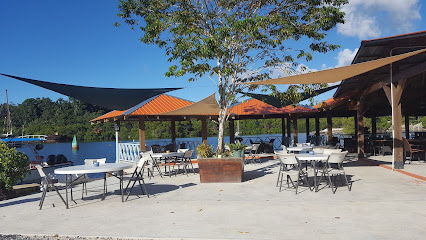
Town's Diner
Experience local flavors at Town's Diner in Kolonia - your go-to spot for delicious meals and fresh coffee in Pohnpei.
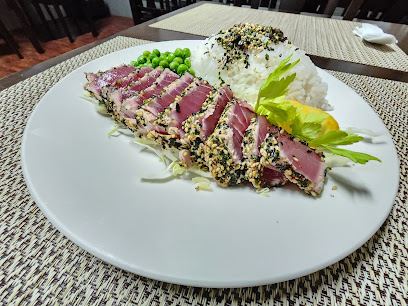
Fusion Restaurant
Experience the fusion of local flavors and international cuisine at Fusion Restaurant in Kolonia, Pohnpei - where every dish tells a story.
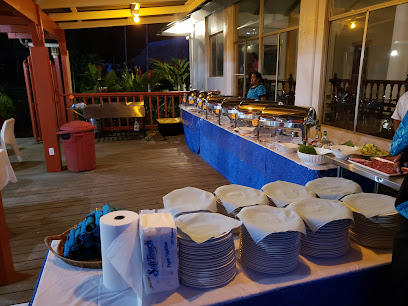
Nett Ramen
Experience the rich flavors of Japan at Nett Ramen in Pohnpei – where every bowl tells a story.
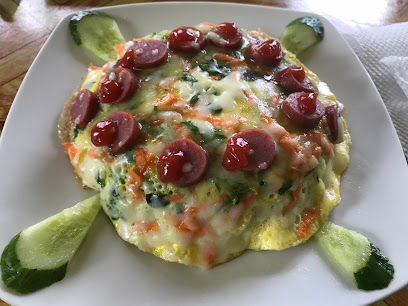
Bully's Restaurant
Experience authentic Micronesian cuisine at Bully's Restaurant in Kosrae, where fresh ingredients meet breathtaking island views.
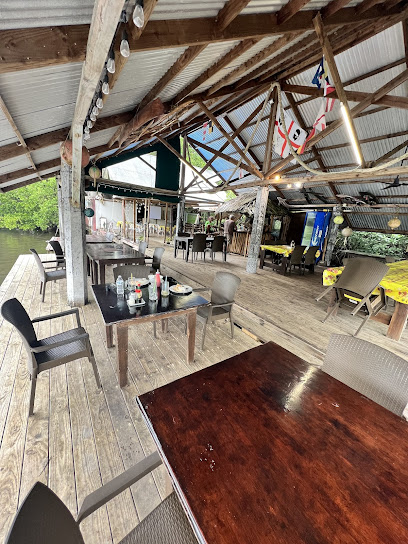
Dominic's Pizza & Food Takeout
Experience mouthwatering pizzas at Dominic's Pizza & Food Takeout in Kosrae - where every slice tells a story!
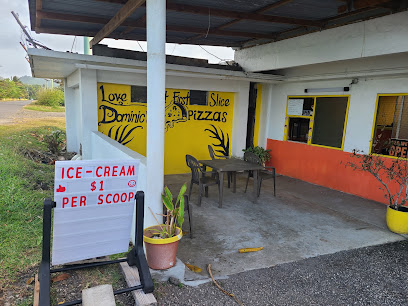
Island Hopper Hotel
Discover tranquility at Island Hopper Hotel in Kosrae, where luxury meets adventure amidst breathtaking natural beauty.
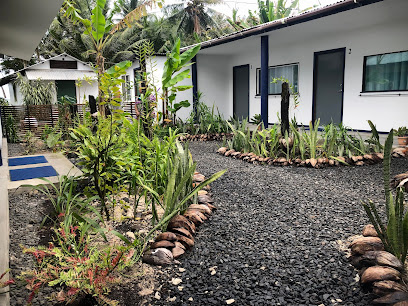
Island Hopper Restaurant
Experience family-friendly dining at Island Hopper Restaurant in Kosrae with fresh local flavors and stunning island views.
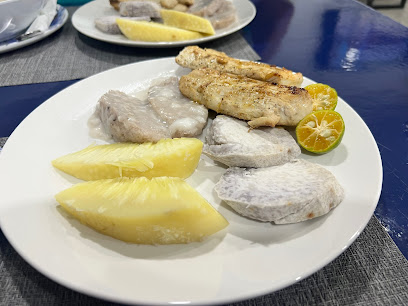
Markets, malls and hidden boutiques
Ross Dress for Less
Shop smart and stylish at Ross Dress for Less in Guam, where fashion meets affordability for the savvy traveler.
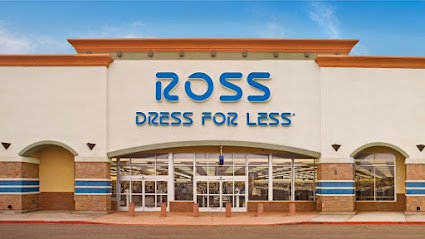
Ace Hardware
Explore Ace Hardware in Kolonia for quality tools and supplies that empower your Pohnpei adventures.
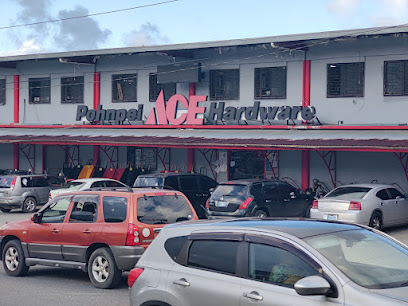
Marina Okat
Explore the unique offerings of Marina Okat, a charming home goods store in Kosrae showcasing local craftsmanship and island culture.
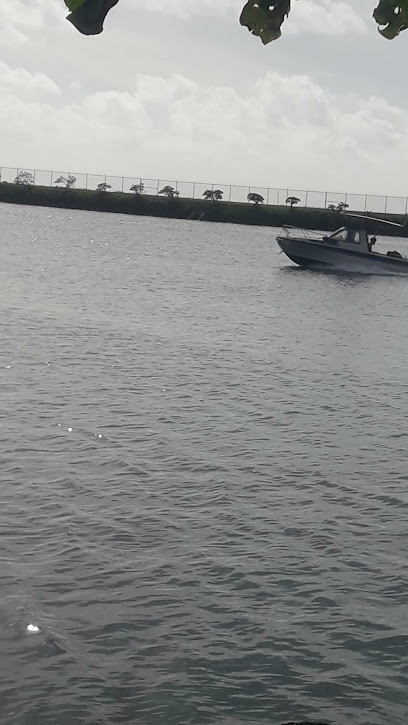
4 R's Mini Mart Store
Explore the vibrant local culture and unique products at 4 R's Mini Mart Store in Peidie, Pohnpei, your gateway to island essentials.
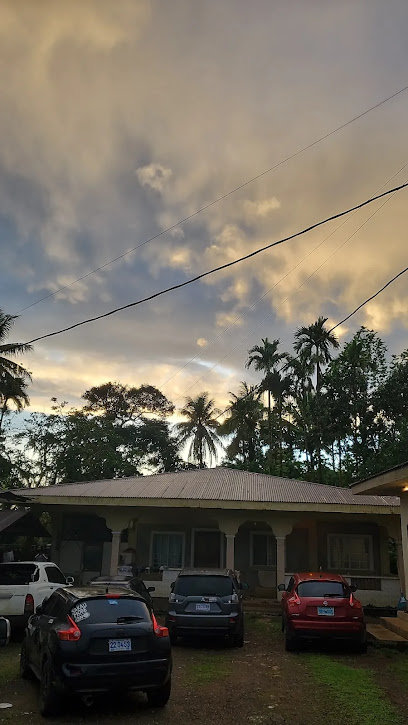
TNR
Discover the best sunglasses at TNR in Kosrae, where style meets protection in a tropical paradise.
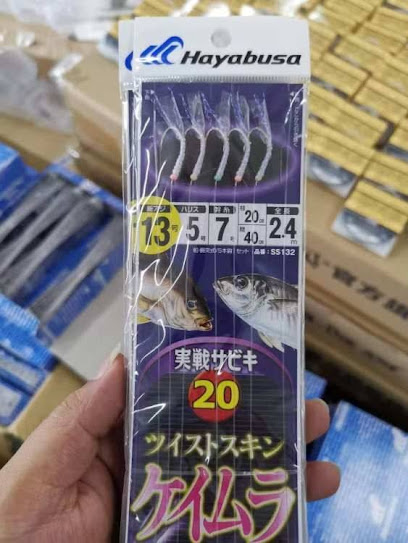
TNR Retail
Explore TNR Retail in Kosrae for unique local products, warm hospitality, and a taste of island culture.

PMW Store
Explore the charm of PMW Store in Malem, Kosrae, where local culture meets unique shopping experiences.

Ace Hardware Kosrae
Explore Ace Hardware Kosrae: A Unique Building Materials Store with Local Charm and Community Connection.

Kurassa Store
Discover the heart of Weno at Kurassa Store, where local culture meets everyday essentials in the beautiful Chuuk Islands.

Mic's Store
Discover a vibrant shopping experience at Mic's Store in Kosrae, where local culture meets international flair for a memorable visit.

Senny's Enterprise Malem Branch
Discover the charm of Kosrae at Senny's Enterprise in Malem, your go-to general store for local goods and warm island hospitality.

Ace Grocery
Experience local life at Ace Grocery, your essential shopping stop in Tofol, Kosrae, offering fresh produce and unique local products.

E&H Store
Explore the vibrant culture of Kosrae at E&H Store, your go-to destination for unique souvenirs and local craftsmanship.

AB ELECTRONS
Explore the best electronics store in Kosrae, where quality meets exceptional service for all your tech needs.

Lelu Trading Center
Explore the vibrant Lelu Trading Center in Kosrae, a marketplace filled with fresh produce, local crafts, and authentic island flavors.

Essential bars & hidden hideouts
Truk Stop Hotel & Restaurant
Experience the unique flavors of the Pacific at Truk Stop Hotel & Restaurant, where culinary tradition meets vibrant island culture.
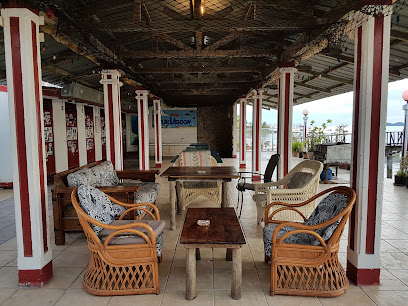
Kosrae Nautilus Resort
Discover serene comfort and breathtaking adventures at Kosrae Nautilus Resort, the perfect getaway in the heart of Micronesia.

Chinastar Hotel & Restaurant
Discover the vibrant culinary scene at Chinastar Hotel & Restaurant in Kolonia, Pohnpei, where Chinese flavors meet island hospitality.

Lelu Ruins Historic Park
Unearth the rich history of Kosrae at Lelu Ruins Historic Park, a captivating archaeological site showcasing ancient stone structures amidst lush landscapes.
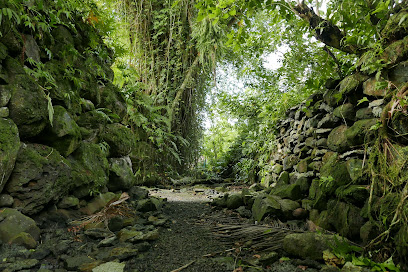
Coco Marina Club
Discover the relaxing vibes of Coco Marina Club in Kolonia, Pohnpei, offering tropical cocktails and breathtaking marina views for an unforgettable experience.
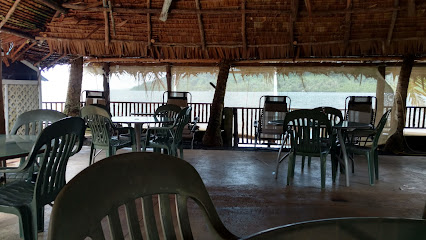
Kosrae Island
Explore the untouched beauty and rich culture of Kosrae Island, a tropical paradise in the Pacific perfect for adventure and relaxation.
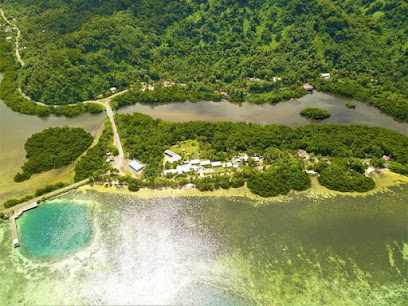
Kosrae
Explore the serene beauty and rich culture of Kosrae, the hidden gem of Micronesia, perfect for adventure and relaxation.
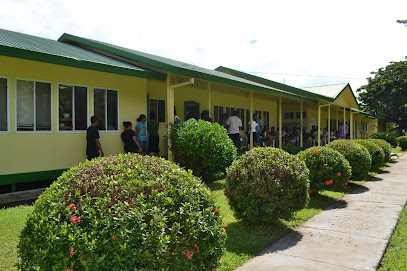
Kosrae International Airport
Discover Kosrae International Airport: Your gateway to the lush beauty and rich culture of Micronesia, where every arrival feels like a warm welcome to paradise.
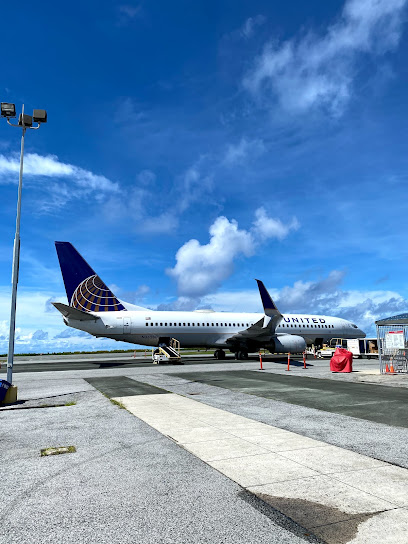
Island Hopper Hotel
Experience the serene beauty of Kosrae at Island Hopper Hotel, where comfort meets nature in a tropical paradise.
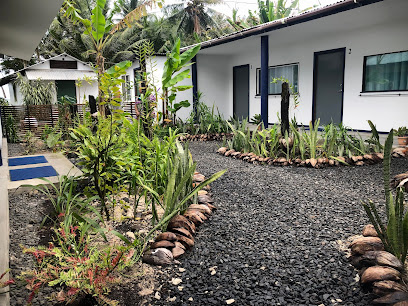
Wiya Bird Cave
Explore the breathtaking Wiya Bird Cave in Kosrae, a stunning natural wonder filled with limestone formations and vibrant wildlife.
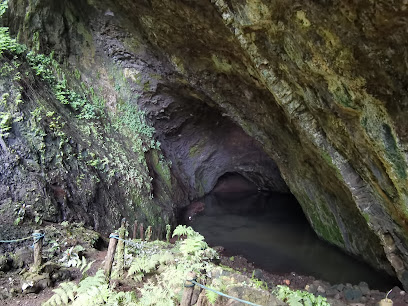
Sipyen waterfall
Explore the breathtaking Sipyen Waterfall in Kosrae, a natural paradise perfect for relaxation and adventure amid stunning tropical scenery.
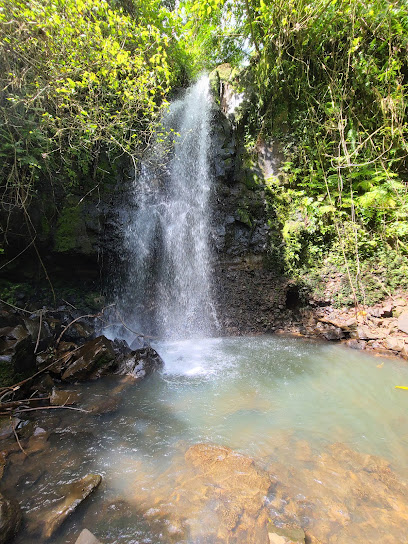
Yela Ka Forest
Explore the enchanting Yela Ka Forest, a nature preserve in Kosrae, where tranquility and vibrant ecosystems await your discovery.
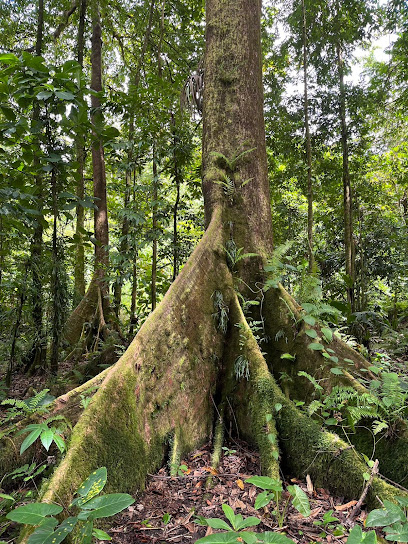
Mangroove Bar
Experience the vibrant atmosphere and refreshing drinks at Mangroove Bar in Weno, Chuuk - a tropical oasis for relaxation and socializing.
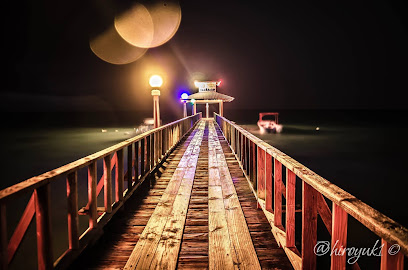
Island Hopper Restaurant
Experience the vibrant flavors of Kosrae at Island Hopper Restaurant, a family-friendly dining spot offering local and international cuisine.
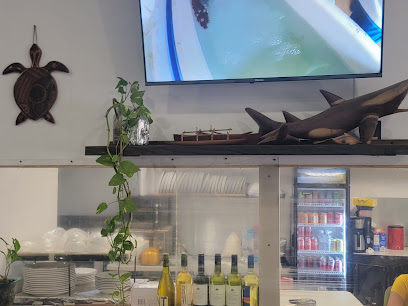
Kosrae, Micronesia
Explore the untouched paradise of Kosrae, Micronesia, where lush landscapes meet vibrant marine life in a tranquil island retreat.

Local Phrases
-
- HelloKaselehlia
[KA-se-LEH-lee-ah] - GoodbyeKalahngan
[KAH-lahng-gahn] - YesEwe
[EH-weh] - NoKowehn
[KOH-wehn] - Please/You're welcomeKulo
[KOO-loh] - Thank youKilisou
[kee-LEE-sow] - Excuse me/SorryPwipwi nuwa
[pwee-PWEE NOO-wah] - How are you?Selehdi mwahng?
[seh-LEH-dee mwahng] - Fine. And you?Kaselehlie, silehdi mwahng?
[KA-se-LEH-lee-eh, see-LEH-dee mwahng] - Do you speak English?Kosrae ahpw kaselehlie kih English?
[KOSS-rye ahpw ka-SEH-lee-eh kee English] - I don't understandKosrae ahpw mahk
[KOSS-rye ahpw mahk]
- HelloKaselehlia
-
- I'd like to see the menu, pleaseKosrae ahpw eh mehng menu, kulo
[KOSS-rye ahpw eh mehng MEH-noo, KOO-loh] - I don't eat meatKosrae ahpw kahpwehki mwehng
[KOSS-rye ahpw kah-pweh-kee mweng] - Cheers!Kalahngan
[KAH-lahng-gahn] - I would like to pay, pleaseKosrae ahpw eh pei, kulo
[KOSS-rye ahpw eh pay, KOO-loh]
- I'd like to see the menu, pleaseKosrae ahpw eh mehng menu, kulo
-
- Help!Kosrae ahpw kowehn
[KOSS-rye ahpw KOW-wehn] - Go away!Kosrae ahpw kahngwan
[KOSS-rye ahpw kahng-wahn] - Call the Police!Kosrae ahpw kohla Pelees
[KOSS-rye ahpw KOH-lah PEH-lees] - Call a doctor!Kosrae ahpw kohla doketa
[KOSS-rye ahpw KOH-lah DOH-keh-tah] - I'm lostKosrae ohpw kahpwehki mwadou
[KOSS-rye oh-pw kah-pweh-kee mwah-DOH-oo] - I'm illKosrae ohpw kahpwehki mwahng
[KOSS-rye oh-pw kah-pweh-kee mwahng]
- Help!Kosrae ahpw kowehn
-
- I'd like to buy...Kosrae ahpw eh kohla...
[KOSS-rye ahpw eh KOH-lah...] - I'm just lookingKosrae ohpw kahpwehki nekeng
[KOSS-rye oh-pw kah-pweh-kee neh-KEHNG] - How much is it?Kosrae ahpw kuhng mwehng?
[KOSS-rye ahpw kuhng mweng] - That's too expensiveEhng koaloahng
[ehng koh-ah-lohng] - Can you lower the price?Kosrae ahpw kuhng kahpwehki leleng
[KOSS-rye ahpw kuhng kah-pweh-kee LEH-lehng]
- I'd like to buy...Kosrae ahpw eh kohla...
-
- What time is it?Kosrae ahpw kuhng mwahng?
[KOSS-rye ahpw kuhng mwahng] - It's one o'clockKosrae mwahng soaloag
[KOSS-rye mwahng soh-ah-loh-ahg] - Half past (10)Kosrae mwahng leleeng
[KOSS-rye mwahng LEH-lehng] - MorningKosrae kalang
[KOSS-rye KAH-lahng] - AfternoonKosrae kalang mwadou
[KOSS-rye KAH-lahng mwah-DOH-oo] - EveningKosrae kalang koukou
[KOSS-rye KAH-lahng KOH-koh] - YesterdayKosrae mwahng kehl kahkita
[KOSS-rye mwahng kehl kah-KEE-tah] - TodayKosrae mwahng kahkita
[KOSS-rye mwahng kah-KEE-tah] - TomorrowKosrae mwahng kehl sohng
[KOSS-rye mwahng kehl sohng] - 1soaloag
[soh-ah-loh-ahg] - 2leduwe
[LEH-doo-weh] - 3nelu
[NEH-loo] - 4niw
[nee-oo] - 5liew
[LEE-eh-oo] - 6onow
[OH-noh-oo] - 7kohse
[KOH-seh] - 8sewe
[SEH-weh] - 9siwo
[SEE-woh] - 10sou
[soh-oo]
- What time is it?Kosrae ahpw kuhng mwahng?
-
- Where's a/the...?Kosrae ahpw kuhng...
[KOSS-rye ahpw kuhng...] - What's the address?Kosrae ahpw kuhng pwung
[KOSS-rye ahpw kuhng PWUNG] - Can you show me (on the map)?Kosrae ahpw kahpwehki mwahng pwung (eh map)?
[KOSS-rye ahpw kah-pweh-kee mwahng PWUNG (eh map)] - When's the next (bus)?Kosrae ahpw kuhng suhng (bus)?
[KOSS-rye ahpw kuhng sohng (bus)] - A ticket (to ....)Kosrae mwahng kuhng (to ....)
[KOSS-rye mwahng kuhng (to)]
- Where's a/the...?Kosrae ahpw kuhng...
History of Kosrae
-
Kosrae, often referred to as 'The Island of the Sleeping Lady,' has a rich history that dates back over 2,000 years. Archaeological evidence indicates that the island was first settled by Austronesian-speaking people, who navigated the vast Pacific Ocean using traditional navigation techniques.
-
During the 14th and 15th centuries, Kosrae became known for its highly organized and complex society. The island was divided into four main districts: Lelu, Tafunsak, Malem, and Utwe. Each district was governed by a chief, with the paramount chief residing in Lelu. The remains of ancient stone structures and royal tombs in Lelu serve as a testament to this period of Kosraean history.
-
The first recorded European contact with Kosrae occurred in the early 19th century when Spanish explorers arrived on the island. However, it was the arrival of British and American whaling ships that had a more significant impact. Reports from these explorers and traders introduced Kosrae to the rest of the world, bringing new goods and diseases that affected the local population.
-
In the mid-19th century, Protestant missionaries from the American Board of Commissioners for Foreign Missions arrived on Kosrae. They played a crucial role in shaping the island’s culture and society. The missionaries introduced Christianity, which quickly spread and became deeply ingrained in the local culture. Traditional beliefs and practices were often suppressed as a result.
-
In 1899, following the Spanish-American War, Spain sold the Caroline Islands, including Kosrae, to Germany. The German administration focused on copra production and infrastructure development. During World War I, Japan seized control of the island and later, under the League of Nations mandate, administered it until the end of World War II. The Japanese period saw further infrastructure development, but also hardship for the local population due to the war.
-
Following World War II, Kosrae came under the administration of the United States as part of the Trust Territory of the Pacific Islands. The American period brought significant changes, including improved healthcare, education, and infrastructure. The island's economy began to diversify, though traditional ways of life were increasingly influenced by Western culture.
-
Kosrae, along with other islands in the Federated States of Micronesia, began to move towards self-governance in the late 20th century. On November 3, 1986, the Compact of Free Association between the Federated States of Micronesia and the United States came into effect, granting Kosrae significant autonomy while still maintaining close ties with the U.S.
-
Today, Kosrae is known for its lush rainforests, pristine coral reefs, and vibrant culture. The island maintains a delicate balance between preserving its rich heritage and embracing modernity. Visitors to Kosrae can explore ancient ruins, partake in traditional ceremonies, and enjoy the natural beauty that has been cherished by generations of Kosraeans.
Kosrae Essentials
-
Kosrae is one of the four states of the Federated States of Micronesia. The most common way to reach Kosrae is by air. The main airport is Kosrae International Airport (KSA). United Airlines operates regular flights to Kosrae from Guam and Pohnpei, which connect to other international destinations. Another option is to travel by sea, although this is less common and primarily used for cargo.
-
Kosrae is a small island, so transportation options are relatively limited. Taxis are available and are a convenient way to get around the island. Renting a car is also an option and can be arranged through local rental agencies. Bicycles and scooters can be rented as well, offering a more adventurous way to explore the island. There is no public transportation system on Kosrae.
-
The official currency in Kosrae is the United States Dollar (USD). Credit cards are accepted in some hotels, restaurants, and larger stores, but it is advisable to carry cash, especially when visiting smaller establishments. ATMs are available, but their number is limited, so it is a good idea to withdraw sufficient cash upon arrival or before leaving a major city.
-
Kosrae is generally a very safe destination for tourists. Crime rates are low, and violent crime is rare. However, it is always wise to take standard precautions such as not leaving belongings unattended and avoiding isolated areas at night. There are no specific high-crime areas targeting tourists on the island.
-
In case of emergency, dial 911 for immediate assistance. Kosrae has a hospital located in the capital, Tofol, which can handle most medical needs. It is recommended to have travel insurance that covers medical emergencies. For minor health issues, there are pharmacies where you can purchase over-the-counter medications.
-
Fashion: Do dress modestly, especially when visiting local villages. Avoid wearing revealing clothing. Religion: Do respect local customs and traditions. Always ask for permission before entering churches or religious sites. Public Transport: As there is no public transport, rely on taxis or rentals. Greetings: Do greet people with a friendly wave or handshake. A smile goes a long way. Eating & Drinking: Do try local foods and accept food offerings graciously. Don’t refuse hospitality, as it is considered impolite.
-
To experience Kosrae like a local, visit the local markets where you can buy fresh produce and traditional Kosraean goods. Engage with locals, as they are often friendly and willing to share stories about the island’s history and culture. Don’t miss visiting the ancient ruins of Lelu and Menka, which offer a glimpse into the island’s past. For a unique experience, try snorkeling or diving in the pristine waters surrounding Kosrae, which are home to vibrant coral reefs and marine life.
Nearby Cities to Kosrae
-
Things To Do in Nan Madol
-
Things To Do in Pohnpei
-
Things To Do in Kolonia
-
Things To Do in Denigomodu
-
Things To Do in Uaboe
-
Things To Do in Aiwo
-
Things To Do in Anabar
-
Things To Do in Buada
-
Things To Do in Boe
-
Things To Do in Ijuw
-
Things To Do in Anibare
-
Things To Do in Yaren
-
Things To Do in Majuro
-
Things To Do in Aur
-
Things To Do in Mili





